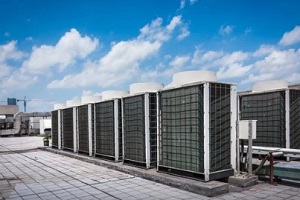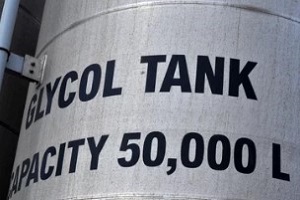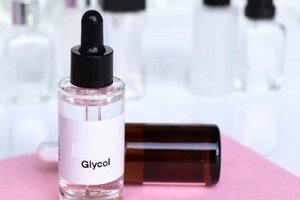 If you operate HVAC systems that require the addition of glycol, you may not have realized that the glycol content needs regular testing. Failure to properly test your system’s glycol can result in overlooking signs that your system could have issues or could be failing.
If you operate HVAC systems that require the addition of glycol, you may not have realized that the glycol content needs regular testing. Failure to properly test your system’s glycol can result in overlooking signs that your system could have issues or could be failing.
Lab testing is the solution to this problem. Consistent testing as part of a regular maintenance plan will reveal the ratio of glycol in your system, whether it is starting to break down, or if you have corrosion or bacteria problems. This article will go over how glycol system testing is performed and how you can prepare for it.
How Is Glycol System Testing Performed?
Glycol system testing is usually performed by professionals with the proper tools, both in person or with a reputable lab. It is possible for business owners to test their own glycol concentrations to a degree, but it is important to collect as much information about your sample as possible.
To learn more about the state of glycol in your system, samples will need to be drawn and sent to a lab. Have your building engineer or water treatment representative draw a sample from your system for evaluation. Here are some steps on how to properly test your system.
1. Ensure Glycol Is Flowing
First, in order to test the system, glycol needs to be flowing continuously. Choose a sample point in the system that has consistent flow. You do not want to draw a sample from an area that has stagnant fluid as that will skew your results.
 It is recommended to take multiple samples from different locations in the system to get a more comprehensive understanding of the system’s overall condition. Alternatively, if the system is prone to corrosion, a sample could be taken from a location where corrosion is known to occur, such as near a valve or fitting.
It is recommended to take multiple samples from different locations in the system to get a more comprehensive understanding of the system’s overall condition. Alternatively, if the system is prone to corrosion, a sample could be taken from a location where corrosion is known to occur, such as near a valve or fitting.
2. Draw the Initial Sample
Next, using a 16oz bottle that has been rinsed and cleaned, draw a sample from the system. Open your valve for a few seconds if possible before collecting any fluid to allow flow.
If the water is dirty or opaque do not worry as the lab test will reveal why. When glycol turns into a sludge like solution, it is an indication that new glycol should be added after the system is cleaned. Glycol may even be dyed when added to the system to show that it is present in the system.
3. Properly Dispose of the Test Sample
This first sample drawn is merely a test, and should be disposed of properly before taking a second sample for the lab. The purpose of the first sample is to do any in person testing with a refractometer or to see the condition of the fluid before pulling a new sample to be sent to the lab.
The solution should be disposed of using the on site mechanical drain or using a designated receptacle that the building uses for other dangerous chemical waste. Do not pour this solution down the drain.
4. Prep the Sample for Testing
After the initial sample has been disposed of, you will again fill a clean 16oz bottle to the top and remove any air. Sealing your bottle properly will ensure that airborne contaminants will not skew the results of the sample you pulled. At this point, apply any labels and documentation required by the lab and affix it to your sample bottle or packaging.
This documentation will list the panel of tests being done and who will receive the report. Your water treatment professional should provide this report if they are responsible for getting this to the lab.
5. Send to a Reputable Lab
 Finally, the sample will be sent to a trustworthy lab that has experience testing glycol. These tests will reveal whether your glycol has begun to degrade as well as whether the system shows any indications that glycol is not working as intended.
Finally, the sample will be sent to a trustworthy lab that has experience testing glycol. These tests will reveal whether your glycol has begun to degrade as well as whether the system shows any indications that glycol is not working as intended.
The lab will test for the percentage of glycol in your mixture, pH to see if glycol is breaking down into an acid, metallic content for corrosion levels, and finally any organics to see if there is bacteria build up. Most water treatment professionals use a handful of select labs they trust and may even take multiple samples to send to multiple labs to make sure results are accurate.
If an issue is found, your system may need to be shut down, flushed, treated, and refilled. Regular lab testing will keep you from having to shut down your system and perform a flush which can increase your operational expenses.
Trust the Experts to Handle Your Glycol System Maintenance
The experts at Tower Water can help you to identify areas of concern in your system’s glycol usage before they grow into damaging problems. We work with reputable labs to provide the results you need to make proper operating decisions at your facility. Call us at (212) 518-6475 to learn more or to schedule an appointment.
